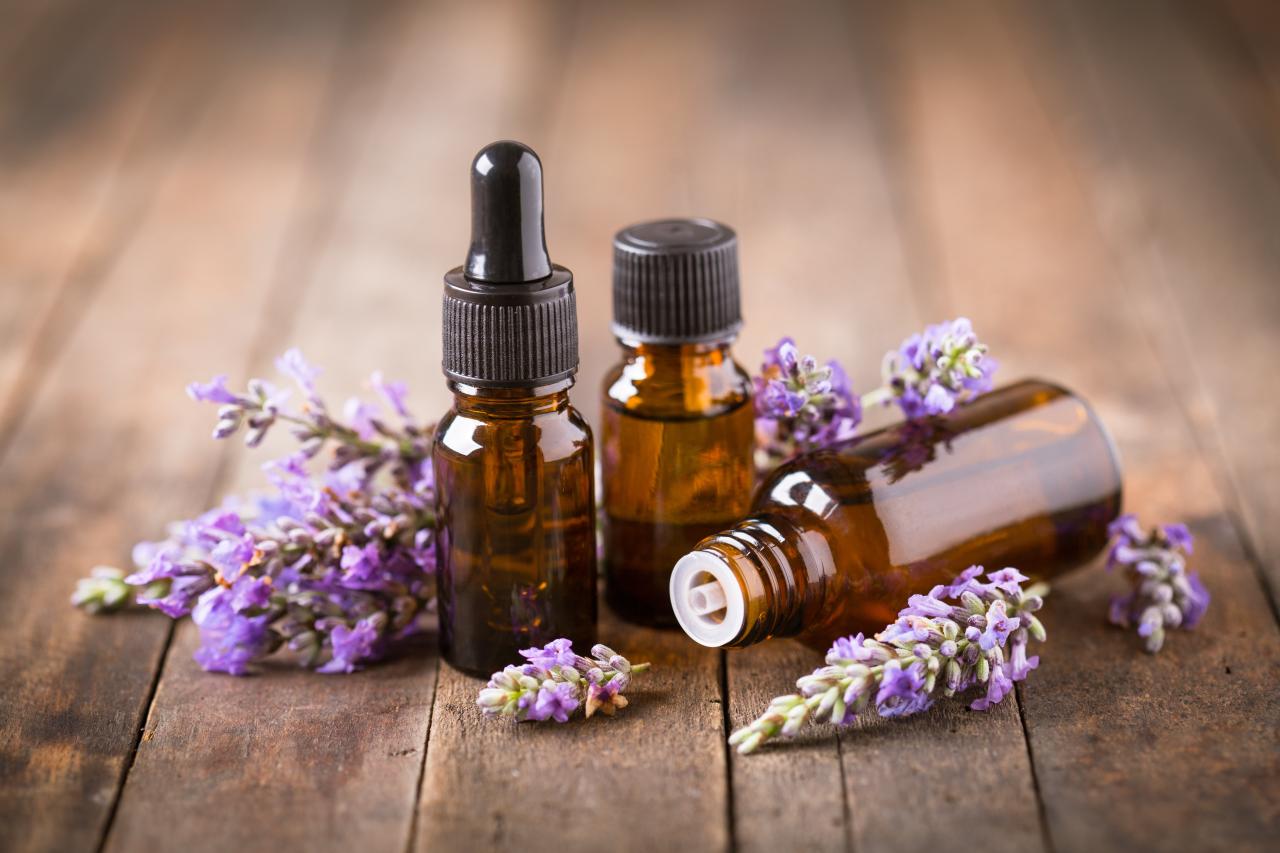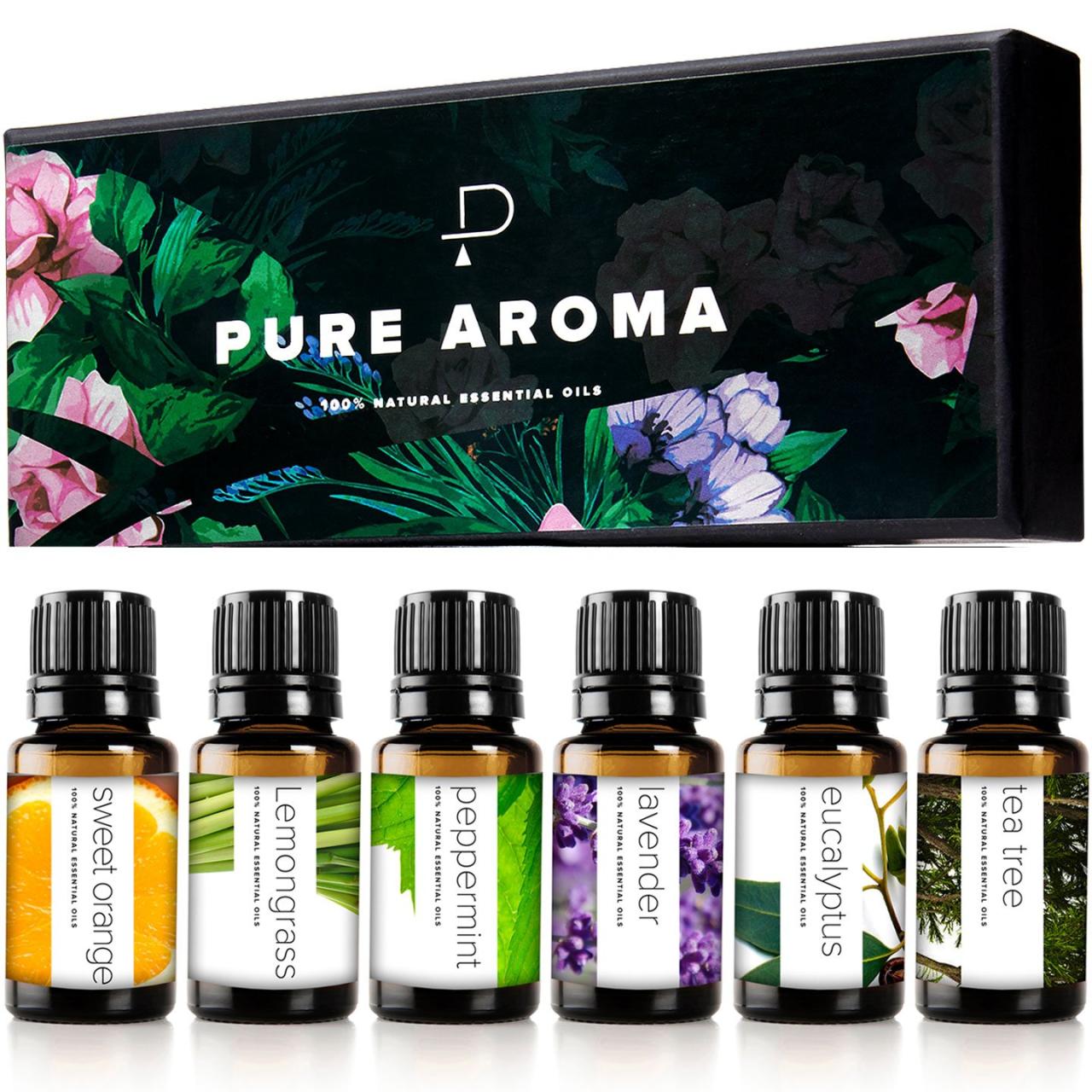Step into the enchanting world of essential oil aromatherapy, where the therapeutic powers of nature’s fragrant essences unfold. Join us as we delve into the science behind these aromatic compounds, exploring their remarkable ability to enhance our well-being, promote relaxation, and revitalize our minds and bodies.
From the serene ambiance of a lavender-infused bedroom to the invigorating aroma of a citrus blend in the workplace, essential oils have found their way into our daily lives, offering a holistic approach to health and wellness. In this comprehensive guide, we’ll uncover the secrets of essential oil aromatherapy, empowering you with the knowledge to harness its transformative power.
Benefits of Essential Oil Aromatherapy
Essential oil aromatherapy, a holistic practice utilizing fragrant plant extracts, offers numerous therapeutic benefits. These volatile compounds, extracted through distillation or cold-pressing methods, possess unique properties that can positively impact our physical and mental well-being.
Essential oils contain a myriad of bioactive compounds, including terpenes, phenols, and esters. These molecules interact with our olfactory system and trigger physiological responses that can promote relaxation, reduce stress, and improve sleep.
Calming and Relaxing Effects
- Lavender oil: Renowned for its calming and soothing properties, lavender oil can alleviate anxiety, promote relaxation, and improve sleep quality.
- Chamomile oil: Known for its sedative and anti-inflammatory properties, chamomile oil can reduce stress, soothe nerves, and aid in relaxation.
- Bergamot oil: Possessing uplifting and calming effects, bergamot oil can help reduce anxiety, improve mood, and promote a sense of tranquility.
Stress Relief and Anxiety Reduction
- Clary sage oil: Known for its ability to balance hormones, clary sage oil can alleviate stress, reduce anxiety, and promote emotional well-being.
- Ylang-ylang oil: With its calming and mood-boosting properties, ylang-ylang oil can help reduce stress, improve sleep, and enhance relaxation.
- Frankincense oil: Possessing anti-inflammatory and analgesic properties, frankincense oil can help reduce stress, promote relaxation, and alleviate pain.
Improved Sleep
- Vetiver oil: Known for its grounding and calming effects, vetiver oil can promote relaxation, improve sleep quality, and reduce insomnia.
- Marjoram oil: With its sedative and antispasmodic properties, marjoram oil can help relax muscles, reduce stress, and promote restful sleep.
- Valerian root oil: Known for its calming and sleep-inducing effects, valerian root oil can help reduce anxiety, improve sleep quality, and combat insomnia.
Methods of Essential Oil Aromatherapy
Essential oil aromatherapy can be enjoyed through various methods, each offering unique benefits and experiences.
Diffusion
Diffusion is a popular method that involves dispersing essential oils into the air using a diffuser. Diffusers use ultrasonic vibrations or heat to break down the oil molecules and release them into the atmosphere. This method is ideal for creating a calming or invigorating ambiance in a room.
Inhalation
Inhaling essential oils directly from the bottle or using a personal inhaler is a convenient and effective way to experience their therapeutic effects. By taking a few deep breaths of the oil’s aroma, you can quickly access its benefits for mood enhancement, stress relief, or respiratory support.
Topical Application
Topical application involves diluting essential oils in a carrier oil, such as coconut or jojoba oil, to create a safe and effective solution for skin care. Essential oils can be applied to the skin for a variety of purposes, including pain relief, inflammation reduction, and moisturizing.
Essential Oil Blends for Aromatherapy
Essential oil blends offer a synergistic approach to aromatherapy, combining the therapeutic benefits of multiple oils. Here are some popular blends for specific purposes:
Relaxation Blend
- Lavender: Calming and soothing
- Bergamot: Uplifting and stress-reducing
- Chamomile: Promotes relaxation and sleep
Energy Boost Blend
- Lemon: Invigorating and uplifting
- Peppermint: Energizing and focus-enhancing
- Eucalyptus: Clears the mind and promotes alertness
Sleep Enhancement Blend
- Lavender: Promotes relaxation and sleep
- Vetiver: Grounding and calming
- Roman Chamomile: Induces deep sleep
Safety Considerations for Essential Oil Aromatherapy

Essential oils, while natural, can be potent and may pose risks if not used properly. To ensure a safe and beneficial experience, it’s crucial to adhere to guidelines for dilution, storage, and disposal, as well as be aware of potential risks and precautions.
Dilution
Essential oils are highly concentrated and can cause skin irritation or other adverse reactions if applied undiluted. Always dilute essential oils with a carrier oil, such as jojoba or coconut oil, before applying them to the skin. A general guideline is to dilute 2-3 drops of essential oil per 10 ml of carrier oil.
Storage
Store essential oils in dark glass bottles to protect them from light and heat. Keep them in a cool, dry place, away from children and pets. Avoid storing essential oils in plastic containers, as they can leach chemicals into the oils.
Disposal
Dispose of essential oils properly by mixing them with an absorbent material, such as sawdust or baking soda, and discarding them in the trash. Never pour essential oils down the drain, as they can contaminate water sources.
Potential Risks and Precautions
While essential oils are generally safe when used properly, some individuals may experience allergic reactions or interactions with medications. It’s always advisable to consult with a healthcare professional before using essential oils, especially if you have any underlying health conditions or are taking any medications.
Applications of Essential Oil Aromatherapy in Different Settings

Essential oil aromatherapy finds versatile applications in various settings, offering therapeutic benefits and enhancing the overall atmosphere.
Home
In the home environment, essential oils can create a calming or invigorating ambiance. For relaxation, lavender, chamomile, or bergamot can be diffused to promote tranquility. For an energizing atmosphere, peppermint, rosemary, or citrus oils like lemon or grapefruit can be diffused.
Workplace
Aromatherapy can enhance productivity and reduce stress in the workplace. Diffusing peppermint or rosemary essential oils can improve focus and concentration, while lavender or chamomile can promote relaxation and reduce anxiety.
Healthcare
In healthcare settings, essential oils can serve as complementary therapies. Lavender is often used to promote relaxation and reduce anxiety in patients. Peppermint oil can help relieve nausea and vomiting, while tea tree oil has antiseptic and antibacterial properties.
Last Point
As we conclude our journey into the world of essential oil aromatherapy, we hope you’re inspired to embrace the transformative power of these fragrant essences. Whether you seek relaxation, invigoration, or simply a deeper connection to nature, essential oils offer a safe and effective way to enhance your well-being.
Remember, safety is paramount when working with essential oils. Always dilute them properly, store them securely, and consult with a healthcare professional if you have any concerns. As you incorporate these aromatic wonders into your life, may they bring you joy, tranquility, and a renewed sense of vitality.